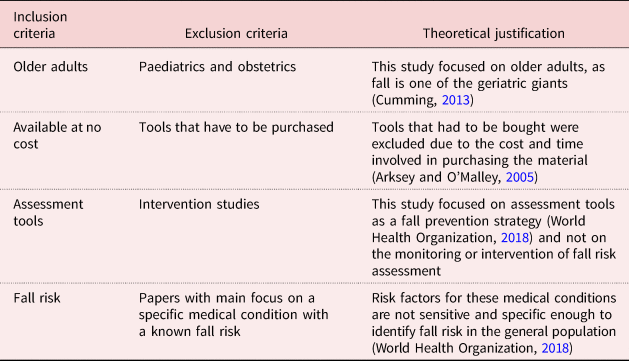The smart Trick of Dementia Fall Risk That Nobody is Talking About
The smart Trick of Dementia Fall Risk That Nobody is Talking About
Blog Article
Rumored Buzz on Dementia Fall Risk
Table of ContentsThe Only Guide to Dementia Fall RiskThe Definitive Guide to Dementia Fall RiskA Biased View of Dementia Fall RiskHow Dementia Fall Risk can Save You Time, Stress, and Money.The Greatest Guide To Dementia Fall Risk
Ensure that there is a marked area in your medical charting system where staff can document/reference scores and record pertinent notes connected to drop prevention. The Johns Hopkins Loss Threat Evaluation Tool is one of many devices your team can make use of to aid avoid adverse clinical occasions.Person drops in hospitals prevail and debilitating adverse occasions that persist despite decades of initiative to reduce them. Improving interaction across the assessing registered nurse, treatment team, person, and patient's most involved family and friends may enhance loss prevention initiatives. A group at Brigham and Women's Health center in Boston, Massachusetts, looked for to develop a standard loss prevention program that focused around improved communication and client and household engagement.

The development group stressed that effective execution depends upon client and staff buy-in, assimilation of the program right into existing operations, and fidelity to program processes. The group kept in mind that they are grappling with how to ensure connection in program application during durations of situation. Throughout the COVID-19 pandemic, for instance, an increase in inpatient falls was associated with constraints in person interaction together with restrictions on visitation.
About Dementia Fall Risk
These occurrences are generally considered preventable. To carry out the intervention, organizations require the following: Access to Fall pointers resources Fall pointers training and re-training for nursing and non-nursing staff, including brand-new registered nurses Nursing process that enable client and household engagement to perform the falls evaluation, make certain use the prevention plan, and conduct patient-level audits.
The results can be extremely destructive, often speeding up person decline and creating longer medical facility keeps. One research study estimated remains boosted an added 12 in-patient days after a patient fall. The Loss TIPS Program is based upon engaging individuals and their family/loved ones throughout three primary processes: assessment, customized preventative treatments, and auditing to make sure that individuals are participated in the three-step loss prevention process.
The individual assessment is based on the Morse Autumn Range, which is a validated autumn risk assessment device for in-patient health center setups. The scale includes the six most common factors patients in healthcare facilities drop: the individual loss history, risky problems (including polypharmacy), use of IVs and various other exterior gadgets, psychological standing, gait, and wheelchair.
Each danger aspect relate to several actionable evidence-based treatments. The registered nurse produces a strategy that includes the treatments and shows up to the treatment group, individual, and family members on a laminated poster or printed visual aid. Registered nurses create the strategy while meeting with the patient and the individual's household.
Fascination About Dementia Fall Risk
The poster serves as an interaction tool with other participants of the client's treatment group. Dementia Fall Risk. The audit element of the program includes examining the client's knowledge of their threat aspects and prevention strategy at the unit and health center degrees. Registered nurse champions conduct at the very least five private meetings a month with individuals and their families to examine for understanding of the fall avoidance plan

A projected 30% of these drops outcome in injuries, which can vary in severity. Unlike various other damaging events that call for a standardized clinical action, fall prevention depends very on the requirements of the person.
How Dementia Fall Risk can Save You Time, Stress, and Money.

Based upon bookkeeping outcomes, one site had 86% conformity and two sites had more than 95% compliance. A cost-benefit analysis of the Loss suggestions program in 8 health centers estimated that the program expense $0.88 per patient to execute and resulted in financial savings of $8,500 per 1000 patient-days in direct costs associated with the avoidance of 567 falls over 3 years and eight months.
According to click to read the technology team, companies thinking about implementing the program needs to conduct a readiness analysis and drops prevention gaps analysis. 8 In addition, organizations need to guarantee the essential facilities and operations for application and develop an implementation strategy. If one exists, the organization's Loss Prevention Job Force must be involved in preparation.
Indicators on Dementia Fall Risk You Need To Know
To start, companies should guarantee completion of training components by registered nurses and nursing assistants - Dementia Fall Risk. Healthcare facility team should evaluate, based on the requirements of a health center, whether to use an electronic health record printout or paper version of the autumn prevention plan. Executing teams should hire and train nurse champs and develop procedures for auditing and coverage on autumn data
Staff require to be associated with the process of redesigning the Get More Information process to engage individuals and family members in the analysis and avoidance strategy procedure. Solution must remain in location to make sure that devices can comprehend why a fall occurred and remediate the cause. Extra particularly, nurses must have networks to give ongoing feedback to both team and system management so they can adjust and improve autumn prevention workflows and connect systemic problems.
Report this page